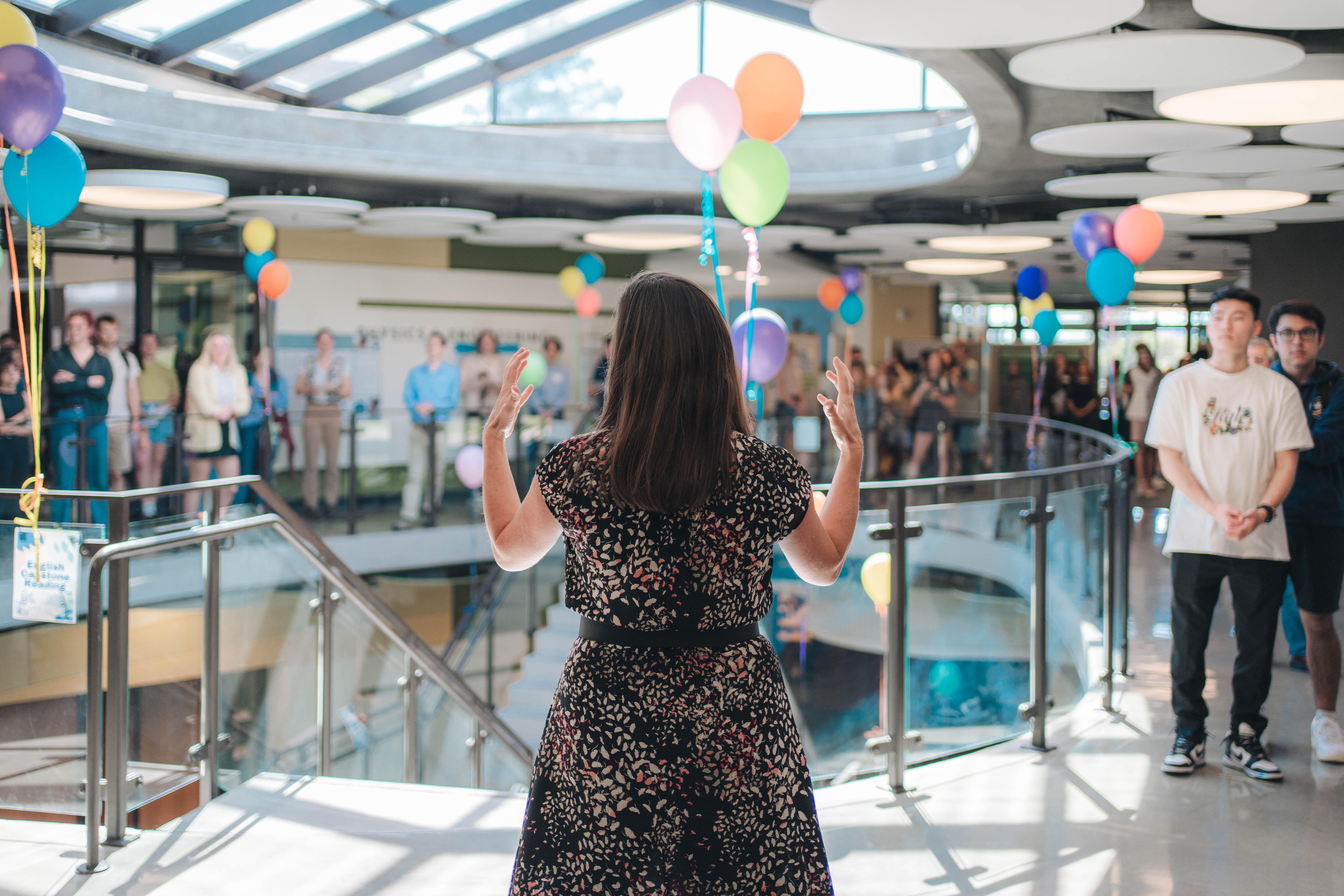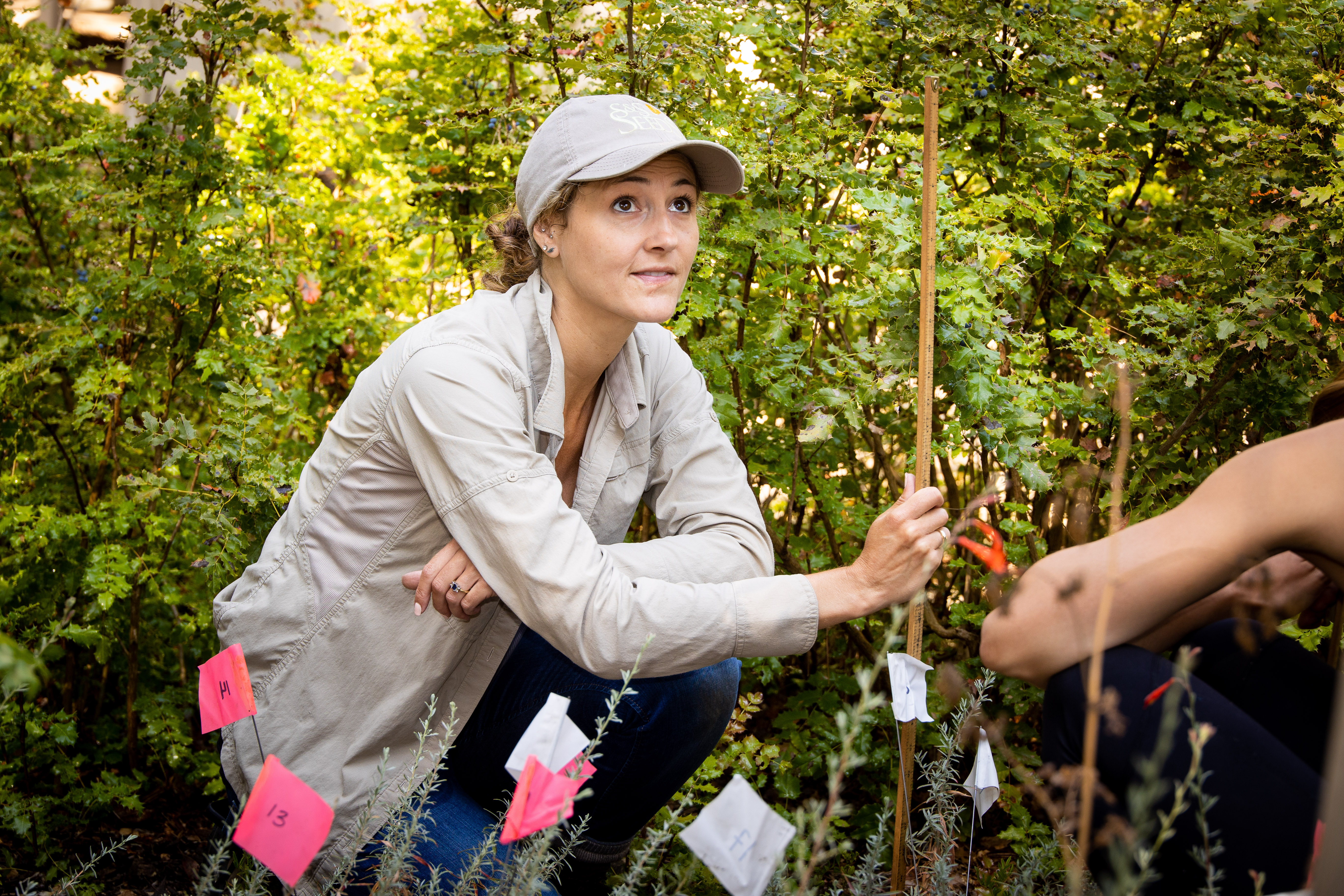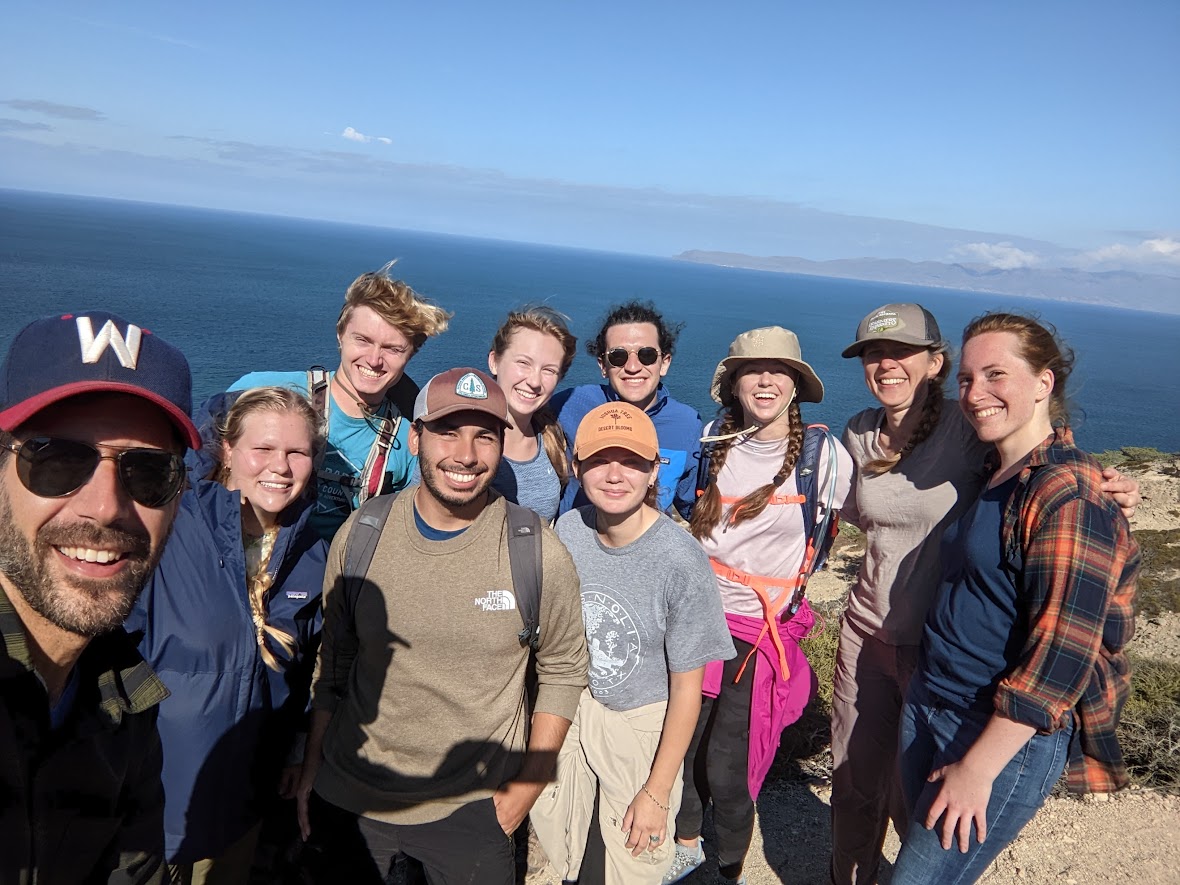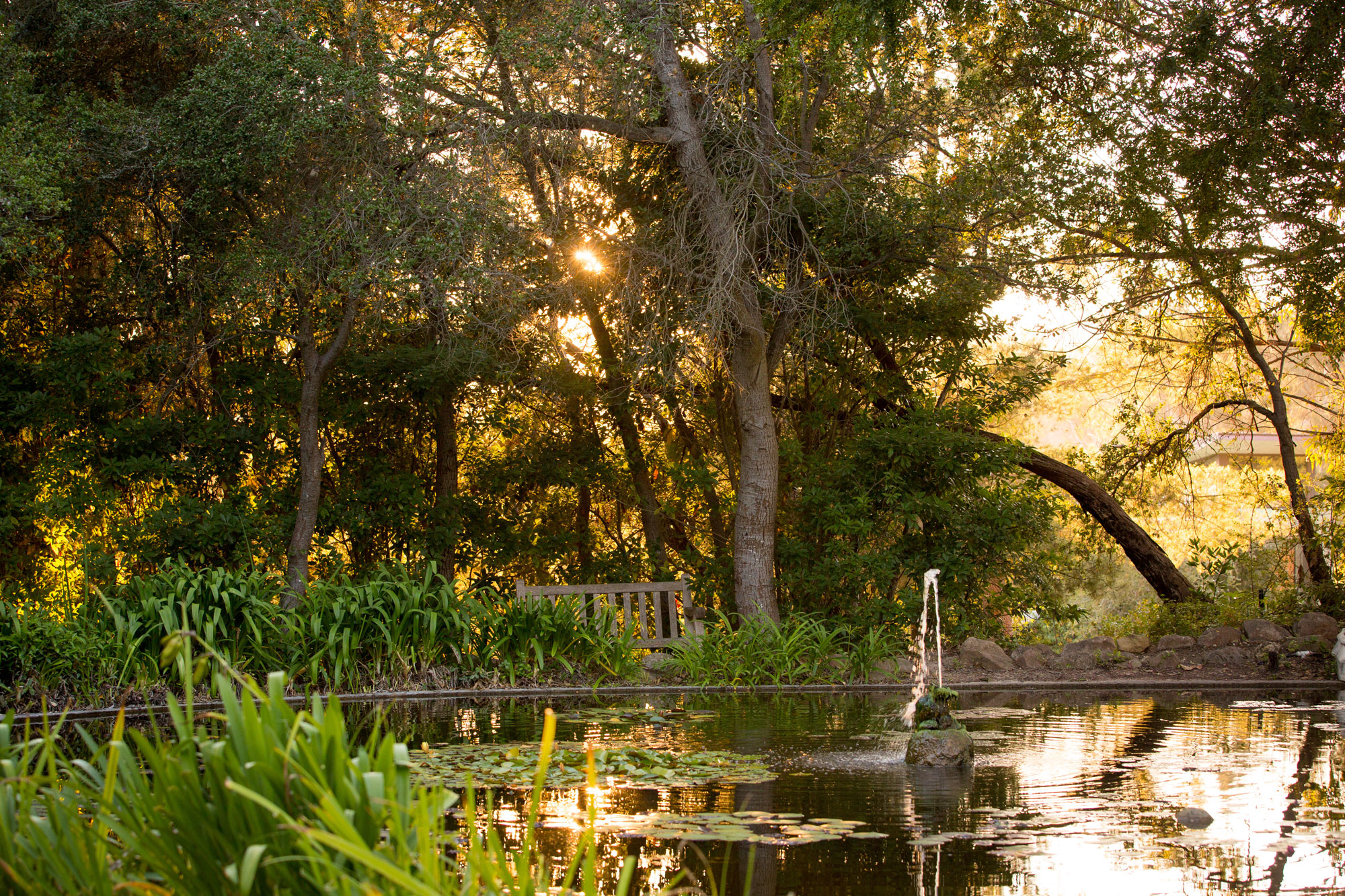Dig deeper into the natural world as you explore living systems and human life in the lab and the field.
Work closely with Christian professors who introduce you to creative and rigorous scientific investigation in a classroom that includes the mountains, the coast and the Channel Islands. Through coursework and independent research, you learn laboratory techniques and field methods. You may even conduct advanced research with faculty and fellow students. Professors integrate biology and faith and discuss issues related to science, ethics and culture. Rigorous study combined with personal attention prepares you for rewarding and challenging work in the lab and the environmental, biotech and health fields.
Major in Biology
Dig deeper into the natural world as you explore living systems and human life in the lab and the field
Research and Internships
Learn about the research and internship opportunities available to Westmont students pursuing a degree in Biology
Off-Campus Programs
Discover unique opportunities for those with an appetite for adventure! Whether it's in old-growth forest or urban jungle, village clinic or ancient library, you will grow - in wisdom, experience, and friendships - all while earning college credit.
Westmont's Campus is home to...
11 reptiles
112 birds
3 amphibians
23 mammals
37 butterflies & moths
19 other insects
6 spiders
26 fungi, lichens & slime molds
13 mollusks & annelids
41 native plants
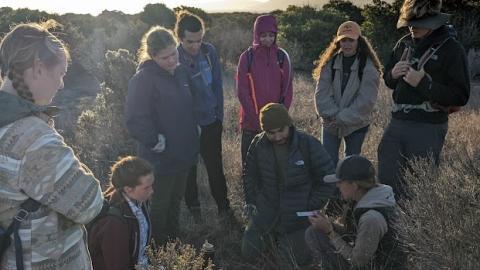
On a field trip to Santa Rosa Island in October students in Environmental Ethics and General Ecology classes conducted research, and worked to support the Cloud Forest Restoration Project.
Staying at the CSU Channel Islands Research Station, the students (and faculty Amanda Sparkman and Stephen Zylstra) researched dwarf alligator lizards, and assisted the Cloud Forest project by gathering toyon seeds, and by making “fog hats” that help plants capture moisture when the island's cloud cover rolls in.
Students also explored the island, and enjoyed a dark night sky, far from city lights and complete with Milky Way!
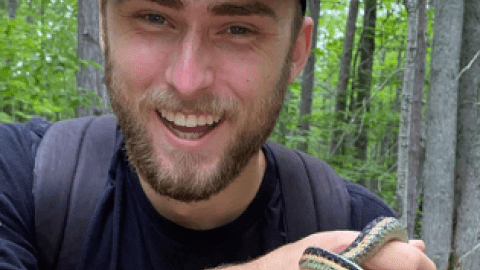
Ever wonder where your studies might take you? For Senior Biology major Alex Rurik and his fellow researchers, their studies took them wherever snakes and lizards might be hanging out. And one exciting result of their fieldwork is an article now published in the journal Diversity, on which Alex is named first author! Kendra Dayton ’21 and Seth Wilmoth ’21 are co-authors, as is Dr. Amanda Sparkman.
The article focuses on the impact of urbanization on reptiles such as the Western Fence Lizard. It’s a timely subject, given the challenges to ecosystems posed by rising human populations and climate change. One of the study’s findings is that urban-dwelling lizard populations do well in parks, low-density residential areas, and areas with rock cover. So, the next time a lizard darts across your path, check out what cover they’re making use of. Start your own research!
Meanwhile, congratulations to all these published researchers, and especially to first author Alex Rurik!
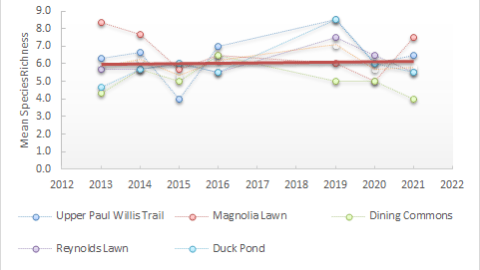
Almost every Autumn since 2012, Dr. Amanda Sparkman and her General Ecology students have been investigating Westmont's bird populations, by conducting bird surveys at five different locations across campus. At dawn.
And unlike so much that we hear about the environment these days, this news is good: Westmont's birds seem to be doing pretty well, with no evidence of declines in species richness (number of species).
The students have benefited as well: they've encountered 38 of Westmont's 110 documented bird species, and learned fundamental methods for analyzing changes in species richness and diversity over time.
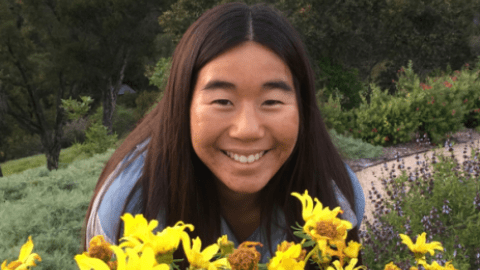
Restoration Ecologist Joanna Tang shared research on California's critically important vernal pool wetlands.
With only 5% of vernal pool habitat remaining, restoration will play the primary role in preventing the extinction of these wetlands. Despite this need, fundamental studies of their restoration ecology are limited, especially in SoCal. Do we understand ecosystem composition, mechanics, and dynamics well enough to conserve and reconstruct this vital part of our local ecosystem? Tang's research uses Southern California vernal pools as a case study for testing and expanding our knowledge of ecological theory, addressing the urgent need that confronts us.
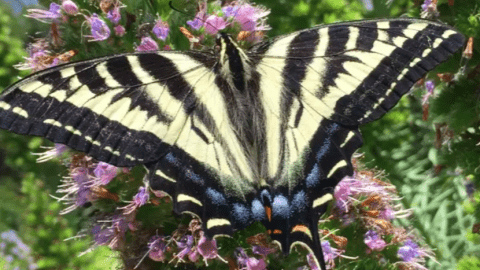
The human population of Westmont comes and goes with the academic calendar, but the campus is a year-round home to countless other occupants, and many of them go unnoticed. Once you know where to look, however, the fascinating array of Westmont's wildlife is there to be discovered.
In celebration of these wild neighbors of ours, the Biology department has launched the Westmont Biodiversity website, housing a growing collection of photos, videos and audio recordings. Watch a bobcat creep along the edge of campus...learn what a Phoebe sounds like and where you might see one...see how small a Small Pointed Snail actually is!
See Westmont through new eyes at www.westmontbiodiversity.com! If you have material to contribute to the website, contact Dr. Amanda Sparkman.
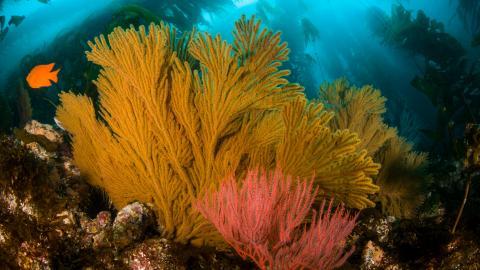
Beth Horvath has seen the publication of her large monograph on Gorgonian corals. It was published by ZooKeys as a Special Issue, #860, comprised of three separate articles in the one issue, and went public and on-line on July 4th—a unique form of Independence Day! As a result of this work, Beth is also listed as a co-author on the 2019 revised NOAA West Coast Deep-Sea species list.
